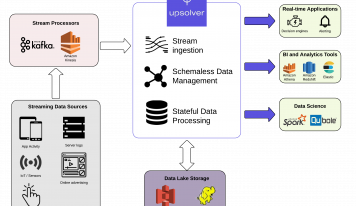As the transition to IP communications continues, the regulatory challenges associated with this transition continue to grow. The arcane world of telecom fees and taxes have been used for years to not only generate income for the government but much of the money went to schools, libraries and rural neighborhoods in order to provide access to all.
Most people aren’t aware of these taxes and fees though and to prove the point, a telecom tax which was used to fund the Spanish-American War of 1896 was repealed in 1996.
The whole legacy telecom business has been under pressure for many years thanks to VoIP providers as well as cable companies who provide VoIP and are able to charge lower fees and make consumer bills smaller.
While I have always been an advocate of new technologies with the potential to disrupt like IP communications, it was unfair to the large telcos to have to compete on an uneven playing field.
Now, AT&T and Verizon are moving customers to VoIP and home-cellular and in the process, providing service which may not support 911 or be as reliable. Moreover, neither technology is able to power devices like copper can.
Bottom line, there is more pressure being placed on our nation’s duopoly telcos to ensure that the poor and people in rural areas are supported by their customers – as they transition to new forms of service..
The New York Times in fact has an opinion piece today which details the situation and inaccurately portrays internet phones as VoIP – you can use VoIP without using the internet for example.
But this minor error aside, it makes the point that new technology shouldn’t kill off consumer protections that made the phone system great.
There are a few ways of looking at this… In many countries they have great phone phone systems – based 100% on fiber-optic cables providing even better quality service than what is found in the US. In other words, what about consumer protections makes something great?
The implication of course is that the phone system was made great because as a society we took from one group of people and gave to another. In this case directly… If you could afford two or three phone lines you paid that much more into a fund which was redistributed to others.
If this latter point is what the author means – and I suspect it is, why would we pressure telephone carriers to not provide new technology to the entire nation because a few people would be harmed? Will we next tell Tesla they can’t sell their cars because this will result in less gas tax revenue which could harm the poor? How about hybrid vehicles, etc.
In other words, how have we come to a point in society where you can run an opinion piece in a major newspaper which suggests that companies not progress? Isn’t progressivism exactly what the New York Times stands for?
Having said this, the opinion piece was well laid out and a slight error aside does make an argument based on compassion. If you agree with the premise of the article, then why not look at alternate means of making it a reality. Universal broadband tax, raise tax rates on other things, etc.
It is these hidden taxes and fees that companies are forced to collect on behalf of the government that keep the citizenry blind to how much money they are really paying the government.
I would love to hear a candidate for Congress or the presidency say they will add a new broadband tax in order to help the poor. If this is the problem, lets discuss it out in the open.
In conclusion, this argument needs to be about helping the poor and finding new ways to do so and having the government reach out and directly tell citizens it needs more money. At least if this is done, the debate will be healthy, above board and not used to deter carriers and other industries from deploying the technologies they think makes the most sense.





